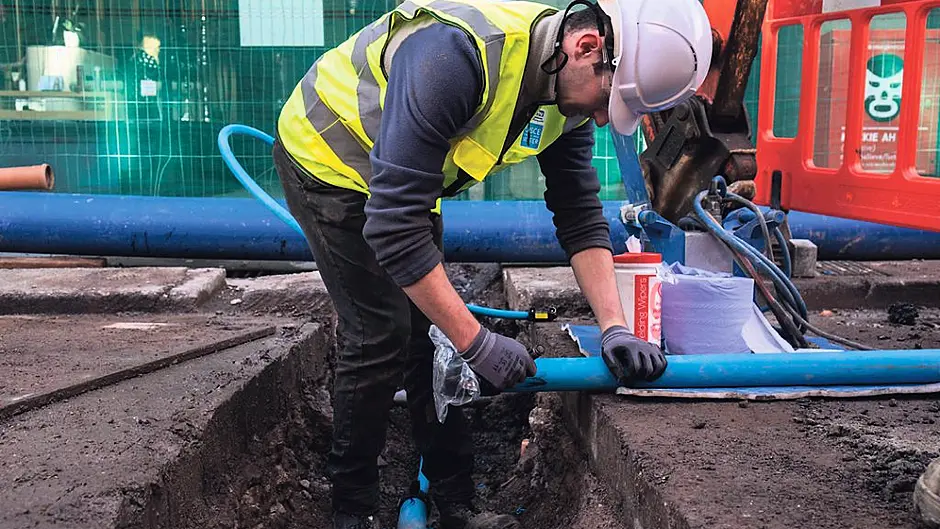Councillors claim that the two biggest issues hindering rural development are the lack of potable water and waste treatment plants.
COUNCILLORS claim that the two biggest issues hindering rural development are the lack of potable water and waste treatment plants.
The issues – and the impact they are having on planning applications – were discussed at a meeting of the Western Committee in County Hall at which county engineer Kevin Morey sought to reassure councillors that new measures have been put in place to deal with issues and complaints relating to Irish Water.
Councillors also rejected the Irish Water clinics – which are held in Cork – as being ‘a waste of time.’
Irish Water’s failure to accept a recent invitation to come to a meeting to discuss the lack of service in small rural communities also sparked considerable annoyance amongst the councillors.
Mr Morey explained it has now been agreed that the councillors can submit – in writing – any questions they would like addressed in advance of the Irish Water clinics, so they could expect a more comprehensive reply.
The county engineer said the councillors would also be able to speak directly to Irish Water officials at the Council’s own development committee meetings, twice a year.
In addition, Mr Morey said the sum of €31m is being made available as part of a scheme called the Multi-Annual Developer Provided Infrastructure Resolution Programme 2019 to 2021.
The programme has four categories: the first is aimed at existing estates that could, with a cash injection and some infrastructural works, connect to an existing public wastewater network.
The second category relates to estates that have 50 or more residential units in larger towns; the third is aimed at estates of 50 residential units or less in smaller rural settlements; while the fourth is for estates of five residential units that rely on small scale wastewater treatment systems.
The tone of the councillors’ response was set by Cllr Gillian Coughlan (FF) who said that ‘€31m for the entire country is woefully inadequate. €31m could be spent in West Cork alone.’
Cllr Joe Carroll (FF) said: ‘There are going to be major headaches because a lot of the standalone schemes are giving trouble. When houses were being built, people didn’t realise that they would have to look after their own wastewater schemes.’
All of the councillors agreed that Crossbarry is ‘in a terrible state at the moment’ and that this project should be prioritised. Problems with treatment systems, or the lack thereof, were raised in relation to Shannonvale, Ballineen, Enniskeane, Kealkil and Ballinascarthy.
Cllr John O’Sullivan (FG) said: ‘The lack of these services is the most serious issue facing us at present. Without them, young families will not be in a position to get planning permission to build new houses and will have no choice but to move out of the countryside – a move that will end rural Ireland.’
Cllr Paul Hayes (SF) said Irish Water’s lack of action in rural areas also has implications for the Council’s road programme because roads that are being resurfaced are being dug up later for water works. ‘People see taxpayers’ money being spent on new roads, only to see them being dug up again later, said Cllr Hayes. ‘It is driving people simple,’ he said.
A spokesperson for Irish Water issued a statement to The Southern Star which outlined some of the many infrastructural projects currently taking place around West Cork. It added that water supply improvement works are being completed in rural areas throughout the county as part of Irish Water’s National Leakage Reduction Programme.








